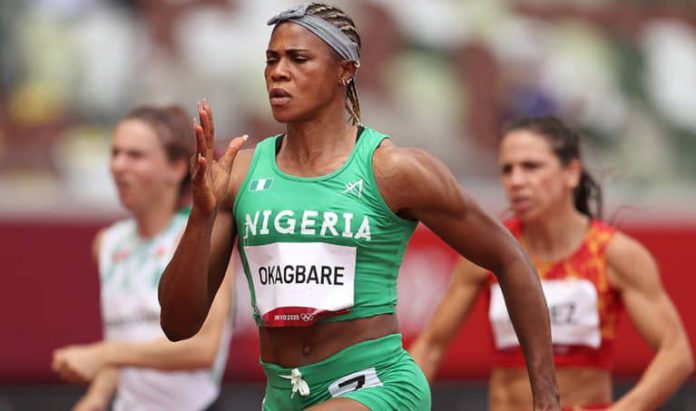Doping bans of late have hugged the headlines with the biggest being Athletics Integrity Union, AIU’s 10-year decision on Nigeria sprinter Blessing Okagbare and Great Britain being stripped of their silver medal in the men’s 4x100m relay at the 2020 Tokyo Olympics after sprinter CJ Ujah was found to have committed an anti-doping rule violation by the Court of Arbitration for Sport.
Ujah took the decision of the AIU in good faith and apologized: “I accept the decision issued by the Court of Arbitration for Sport with sadness. I would like to make it clear that I unknowingly consumed a contaminated supplement and this was the reason why an anti-doping rule violation occurred at the Tokyo Olympic Games,” Blessing Okagbare is still consulting with her lawyers.
However, a Professor of Sports Medicine, Ken Anugweje is of the view that several factors lead athletes to contravene doping rules.
Anugweje, who is the Director of the University of Port Harcourt Sports Institute as well as the Confederation of African Athletics High-Performance Centre in the University and Chairman, Medical & Anti-Doping Commission of the Athletics Federation of Nigeria, AFN in this interview gives an insight into areas government and indeed athletes must take note of to avoid such embarrassments in the future.
At the inaugural address to members of the AFN Commission, Professor Anugweje had set out various subcommittees such as Information and Education; Test Planning; Athletes’ Liaison; Surveillance; Secretariat to maintain and update Whereabouts Information and to act as contact person with the Athletics Integrity Unit and National Anti-Doping Committee respectively and finally Policy Implementation.
This is how he responded to our questions. Enjoy the interview. In terms of education, whose responsibility is it to give the athletes an insight into the dangers of doping?
There is a constant need for Information and Education where there is a need to organize seminars, workshops and clinics for anti-doping education of athletes and Athletes’ Support Personnel.
How will an anti-doping lab benefit Nigeria?
A doping laboratory in Nigeria will only save us the cost of sending samples overseas. It doesn’t confer any other advantages.
Every WADA accredited lab reports every adverse analytical finding and the result is announced globally.
What factors lead athletes to use drugs to enhance performance?
The fame and huge earnings are the major reasons for the use of performance-enhancing substances and methods. We should establish regular communication with athletes at home and abroad and report on their programmes, activities, challenges, achievements and to monitor their test status.
Whose duty is it to monitor athletes?
The NOC and the Ministry of Youth and Sports Development should mandate each Sports Federation to constitute Anti-Doping units. There should also be surveillance to develop a variety of strategies to monitor and report cases of doping infractions at sports arenas and training and competition venues.
Can an athlete take drugs innocently not knowing that it’s banned? Athletes are responsible for whatever is found in their sample. It doesn’t matter if they knew or not. This is known as the strict liability rule.
10 Nigeria athletes were not allowed to compete at the Tokyo 2020 Olympic Games, how do we avoid a future occurrence?
The 10 athletes were disqualified because they didn’t take the 3 mandatory out-of-competition tests for Athletics Integrity Unit’s Category A Federations (Rule 15 of World Athletics Anti-Doping Rules.












